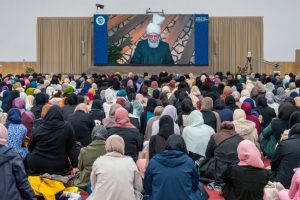
Syeda Nooresehar Ahmad, UK
When we first began feeling the effects of COVID-19, it was originally imagined that the virus would be a great leveller, proving us all to be equals to the threat of sickness and death. Since then, however, it has proven itself to be something quite different; the pandemic has highlighted already existing cracks in society. Whether it is statistics showing that Black and South Asian communities in the UK [1] suffer disproportionately from the disease, to some panicking over looming rent deadlines whilst others migrate to second homes [2] in the suburbs- we have been forced to take a hard look at our society, and the ways it can both serve and fail us. When the 13th of August delivered A Level results [3] wherein a computer algorithm seemed to have swapped expected grades with ones which seemed to better match the reputation of the student’s schools, areas and postcodes than it did the work of the individual, the effects of coronavirus exposed another system that was flawed. This time, it was education.
Whilst it didn’t take long for the awarded grades to be replaced with those that were based on teacher assessment, the days of panicking for students who had been downgraded were enough to bring attention to issues of accessibility to education in this country. Because in truth, since the trebling of tuition fees in 2012, students from a wider socioeconomic background have been struggling to keep up with an intense higher education system.
Currently, degrees cost £9,250 per year- with the cap set to get higher. The average graduate from a three year degree in the UK now leaves [4] university in £50,000 of debt and faces high interest rates, which are forecast to rise to £8.6bn a year [5] by 2024. With higher fees comes more pressure both for the student and for the universities; institutions of learning turn into businesses and, as one article [6] in the Guardian put it, ‘there has been a shift from prizing learning as an end in itself to equipping graduates for the job market, in what for some can be a joyless environment.’ No wonder then that data on the five- year period [7] beginning the year before tuition fees in England were tripled revealed that 67% of UK institutions saw an increase in the proportion of students dropping out.
And it is not just these figures which are worrying. Recent years have seen huge declines in student mental health. Almost 90% of students [8] in the UK have reported struggling with feelings of anxiety, with 42.8% often or always worried. 33% reported suffering from loneliness often or all the time. Most alarmingly, several universities have experienced a number of student suicides in a short space of time- in July 2017 [9] the rate for the previous year was about one death every four days.
As cost steadily rises, the purpose of education seems to have been lost. Rather than universities fostering environments of creativity, exploration and learning, a high pressure atmosphere is created. In a society driven by materialism and individualism, it is interesting to imagine the differences that could be seen in the approach to education, if we were driven by different values.
In Islam, the pursuit of knowledge is encouraged for the sake of uplifting mankind. In the Holy Qu’ran [10] , chapter 20 verse 115 is the prayer, ‘O my Lord, increase me in knowledge.’ Similarly, the Holy Prophet Muhammad (sa) said [11], ‘It is the duty of every Muslim man and every Muslim woman to acquire knowledge.’ There is great wisdom behind these simple messages; not only is religious and spiritual knowledge considered of the highest value in Islam, but as the Fifth Caliph and Worldwide Head of the Ahmadiyya Muslim Community, His Holiness Hazrat Mirza Masroor Ahmad (aba) explained in his address at UNESCO [12], access to good secular education has the power of ‘breaking the cycle of poverty that has plagued economically weak countries for generations.’
Today, the Ahmadiyya Muslim Community stands as an example of this Islamic attitude towards education. The Third Caliph, Hazrat Mirza Nasir Ahmad (rh) began the tradition of awarding medals for those who excel academically; a tradition which continues till this day. These awards continue to inspire generation after generation to have high academic aspirations so as to receive that honour from their Caliph.
But education is not just encouraged- it is made accessible. The 99% literacy rate of Ahmadi Muslim girls in the developing world bears testament to this; as does the ‘Knowledge First’ [13] Program run by the Ahmadi Muslim charity Humanity First, which has so far built 34 schools in locations such as Tanzania, Haiti and Guatemala. The last few months in the pandemic also showed commitment to accessible education, with Ahmadi Muslim teachers volunteering their skills in teaching a variety of subjects both religious and secular [14] for students aged 5 to 16+.
This work is able to flourish under the guidance of the Caliph, with the true teachings of Islam as the foundation of all efforts. As His Holiness Hazrat Mirza Masroor Ahmad (aba) said in his address to Ahamadhi Muslim children [15] in 2014, ‘The Quran throws light upon science, history, economics and so much more. It teaches us about human rights – such as the rights of women, the rights of the poor and deprived and the rights of the child. The Quran educates us about family matters and about fulfilling the rights of one another. In truth, all types of knowledge are contained within the Holy Quran.’
About the Author: Syeda Nooresahar Ahmad, having just completed her A levels, will commence studying English Language and Literature at University. She regularly writes for the blog site of the Ahmadiyya Ladies Association UK ‘Voice of British Muslim Women’, and is the local Publications Secretary for the Hartlepool chapter of the Ahmadiyya Muslim Community UK
References
[1] gov.uk/government/publications/covid-19-understanding-the-impact-on-bame-communities
[2] https://www.prospectmagazine.co.uk/politics/coronavirus-second-homes-countryside-london-nathalie-olah
[3] https://www.bbc.co.uk/news/education-53864351
[4] https://www.ft.com/content/b189980a-19a5-11e9-9e64-d150b3105d21
[5] https://www.theguardian.com/education/2019/aug/12/graduates-in-england-face-increasing-debt-burden-labour-warns
[6] https://www.theguardian.com/society/2019/sep/27/anxiety-mental-breakdowns-depression-uk-students
[7] https://www.itv.com/news/2020-01-03/two-thirds-of-universities-and-colleges-see-rise-in-drop-out-rates
[8] https://www.theguardian.com/education/2019/mar/05/levels-of-distress-and-illness-among-students-in-uk-alarmingly-high
[9] https://www.theguardian.com/society/2019/sep/27/anxiety-mental-breakdowns-depression-uk-students
[10] https://www.alislam.org/quran/20:115
[11] https://www.alislam.org/question/are-women-inferior-to-men-in-islam/
[12] https://www.alislam.org/articles/islamic-principles-on-education-serving-humanity/
[13] https://usa.humanityfirst.org/hf_programs/knowledge-of-life/
[14] https://ahmadiyya.uk/talim/online-classes/
[15] https://www.pressahmadiyya.com/press-releases/2014/04/head-ahmadiyya-muslim-community-addresses-ahmadi-muslim-youths-importance-religious-secular-education/




Add Comment